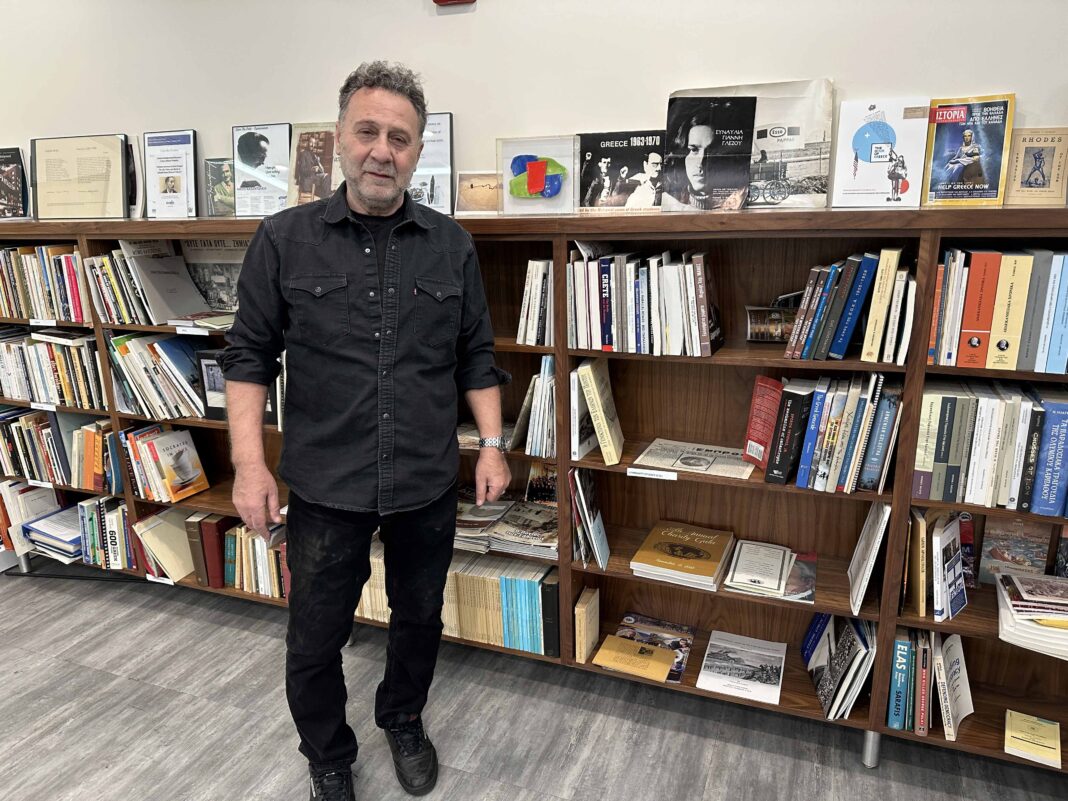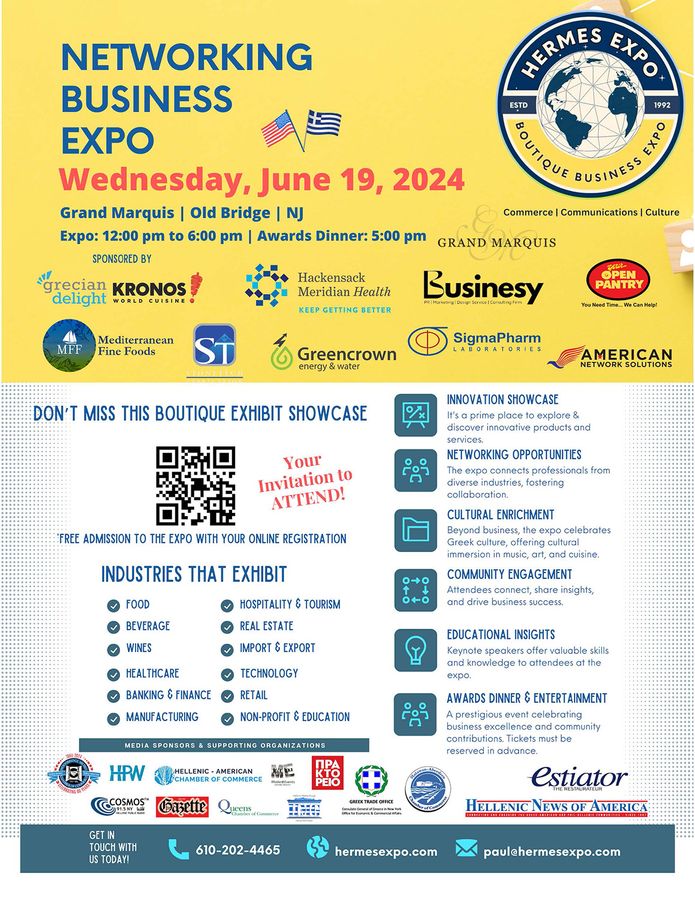By Catherine Tsounis
“A library of wisdom is more precious than all wealth, and all things that are desirable cannot be compared to it. Whoever therefore claims to be zealous of truth, of happiness, of wisdom, or knowledge, must become a lover of books.” – Plato
“Libraries must be preserved. This is the Greek American community. It must be handed down to the next generation,” said Dr. Nicholas Alexiou, Director of the Hellenic American Project at Queens College, CUNY. We were amazed by the books and collections of Greek American life at the library. It includes works by Elia Kazan, Maria Callas, Telly and George Savalas, artist Theodore Stamos, and others. The Queens College library of CUNY houses a priceless history of the largest Greek Diaspora community in New York City.
My publisher, Apostolis Zoupaniotis of the Greek News, donated his archives to the HAP library. “Apostolis was my classmate in Greece,” said Prof. Alexiou. “Apostolis Zoupaniotis was the editor-in-chief and publisher of the Greek American newspaper Greek News and an active member of the Greek American community for over thirty years. The archive donated to the Hellenic American Project, Department of Sociology, Queens College, CUNY, comprises material related to Greek Collegiate Student Associations of CUNY colleges. As the material is cataloged and digitized, it will be available on the website.” I was honored to work with Publisher Zoupaniotis for 20 years, in a harmonious relationship. A brilliant professional, his legacy is preserved at the Hellenic American Project.
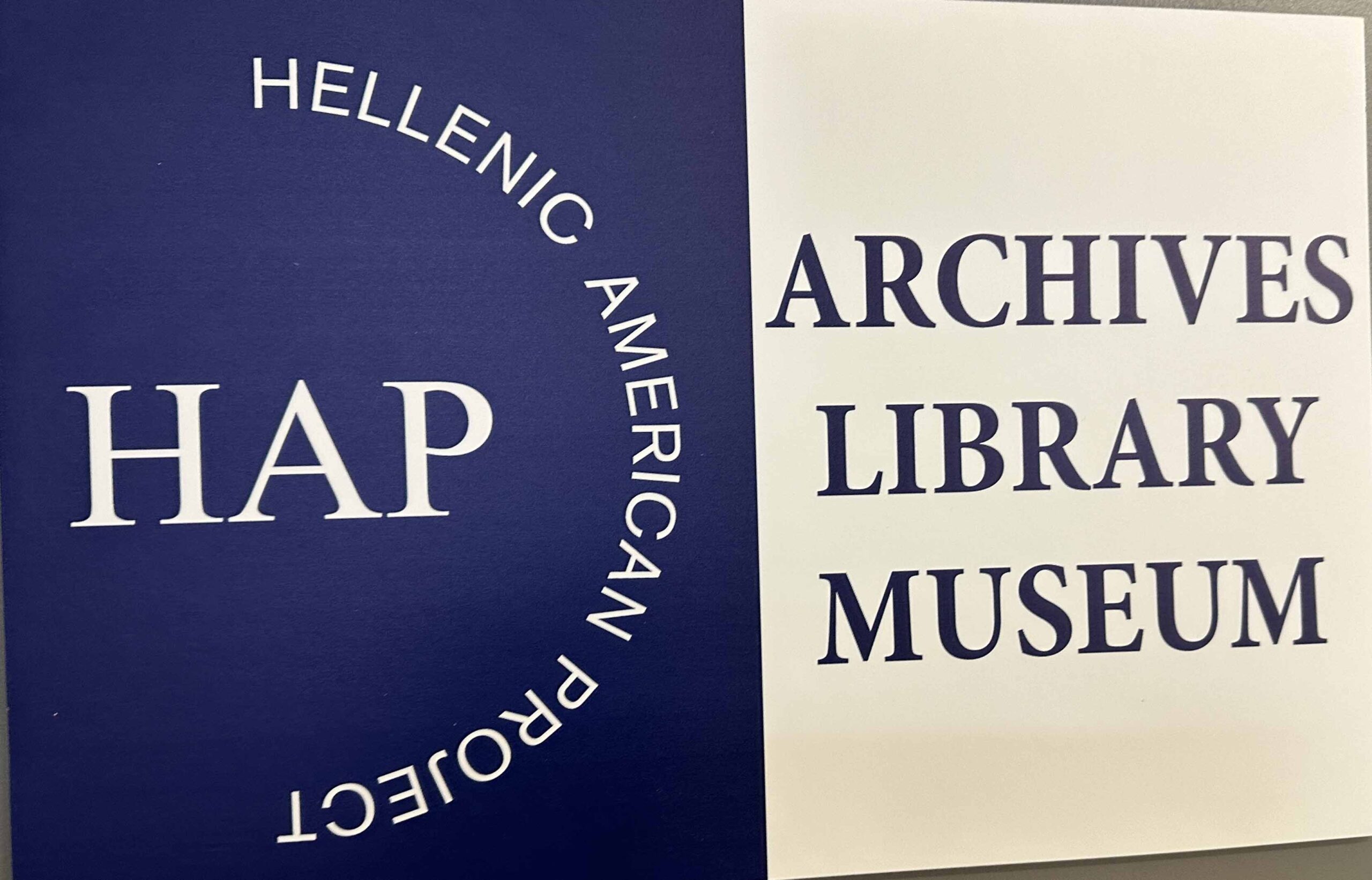
Dr. Alexiou received his M.A. degree in Sociology from Queens College, CUNY, and his Ph.D. from the Graduate Center, CUNY. A sociologist, he has taught in the Department of Sociology and the Center for Byzantine and Modern Greek Studies at Queens College since 1990. Dr. Alexiou received the President’s Award for Excellence in Teaching. He has established the first Oral History Archive for the Greeks of New York. The sociologist, poet, and artist is the Director of the Hellenic American Project at Queens College, CUNY.
“Massive Greek immigration to the United States did not occur until the twentieth century,” said Dr. Nicholas Alexiou. “The first massive wave took place between 1900 and 1924, and a second, smaller wave occurred between 1965 and 1980. Very few people know about the 1912 wave of immigration. The American-born Greek population is 66%, compared to 34% of foreign-born Greek Americans. This indicates a significant transformation of the group, supporting that the post-1965 Greeks are beyond the immigrant generation. Greek Americans are no longer an immigrant group but an American ethnic group. Greeks are now Americans of a certain ethnic background.”
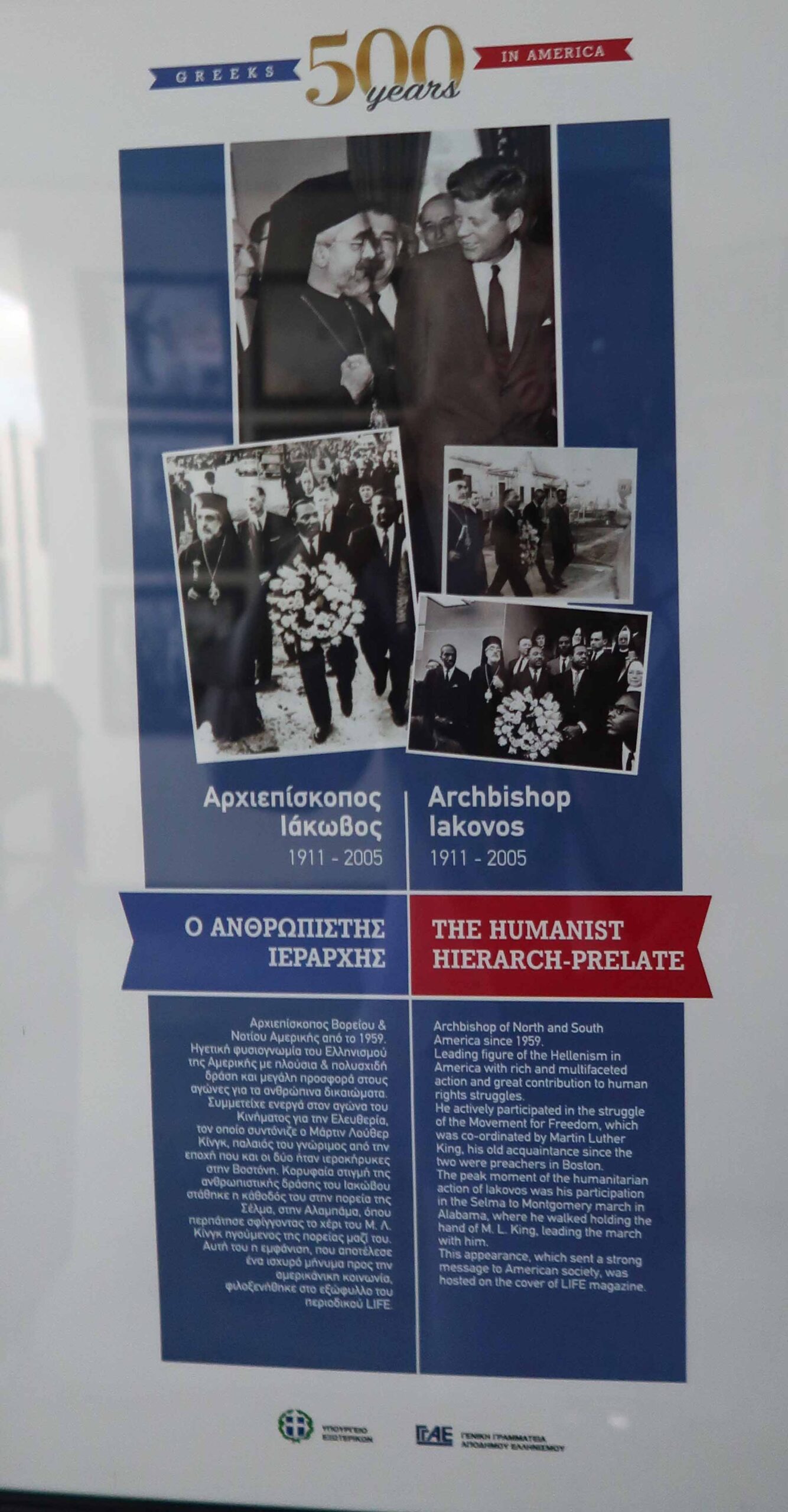
HAP maintains the first and only Greek American Library in New York. The Hellenic American Project Library was renamed Argonauts Library in November 2021 to recognize a major donation from the association Syllogos Nomou Magnisias Argonaftes (Argonauts). The Argonauts Library houses over 3000 volumes, all works of Greek American writers, poets, or books about Greek Americans.
“According to the last census, it is evident that the Greek American community of New York is undergoing a cyclical change, as the original post-1965 immigrants have achieved residential mobility and moved out of Astoria,” explained Professor Alexiou. “They have established satellite communities in the nearby semi-suburban areas of Queens, such as Bayside and Whitestone. It is of major sociological interest to examine to what extent post-1965 ethnic groups maintain their ethnic identity and attachment.”
“This present research project attempts to document the level of ethnic attachment among first and second-generation Greek Americans as a case study of the new post-1965 generations of Southern European immigrants in the United States,” he said. “Social scientists consider ethnic attachment a major indicator of the degree to which members of an ethnic or immigrant group are integrated into the ethnic community on three possible levels: culturally, socially, and psychologically.
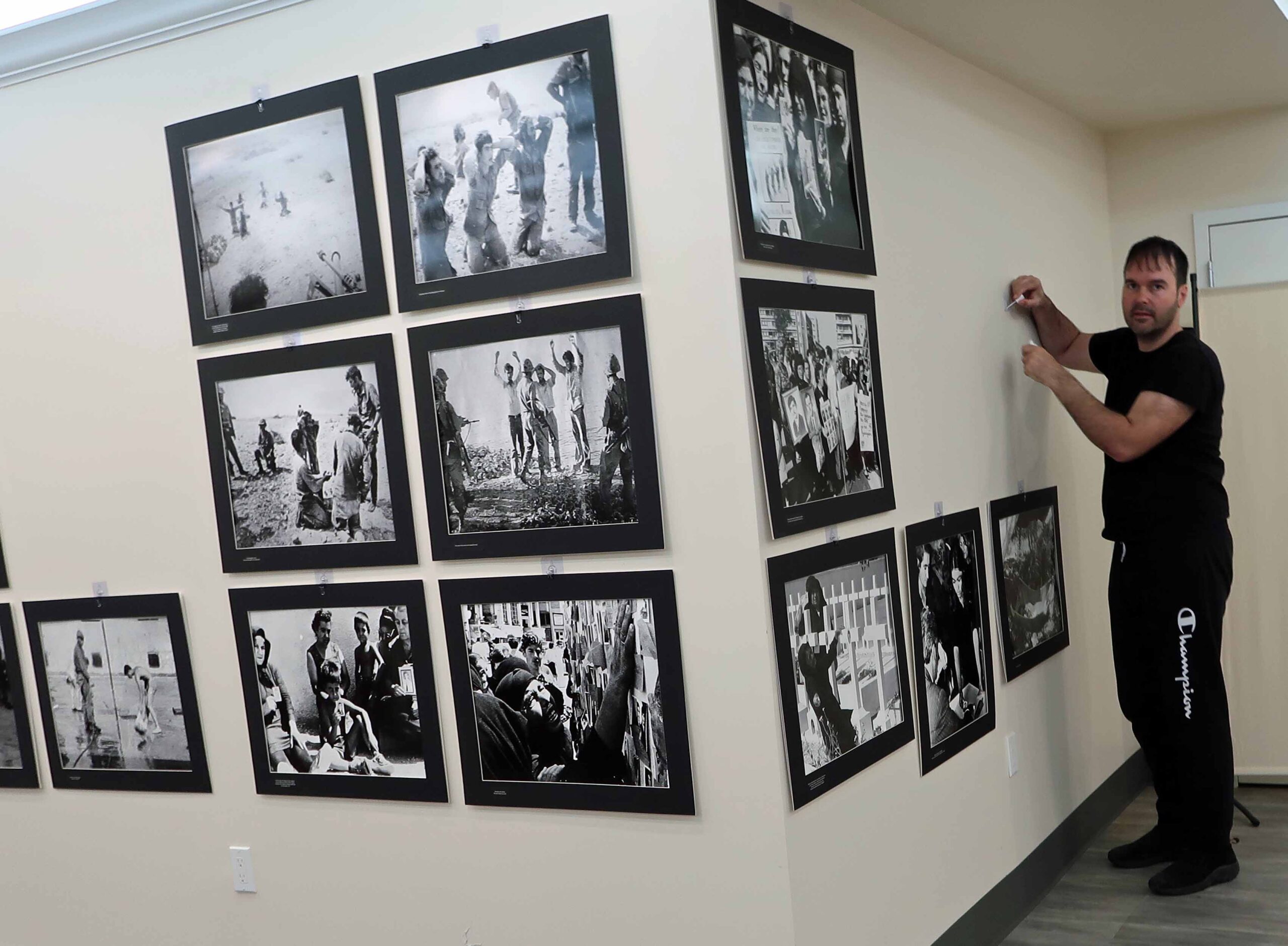
Although social research on the “new second generation” has significantly increased since the late 1980s, not much scholarly work has been done on second-generation Greeks. In this respect, the sociological analysis of Greek immigration to the US remains incomplete. The findings of this research are important to Greek American sociological literature and Greek American studies in general, as they provide new knowledge on a group that has not been studied adequately.”
Professor Alexiou firmly believes that “Greek Americans are no longer an immigrant group, but an American ethnic group. Greeks are now Americans of a certain ethnic background. Of the foreign-born, Greek males have higher rates of naturalization (52%) than females (48%). On the national level, the majority of Greek Americans speak only English at home (73%), while in New York, the rate is as low as 35%. This finding supports our hypothesis that the Greek American community still has a strong cultural attachment, with lower cultural assimilation rates than Greek Americans in the rest of the United States. A sociological explanation for this is the fact that New York has received the majority of the post-1965 immigrants, who replenish the Greek population of the area.”
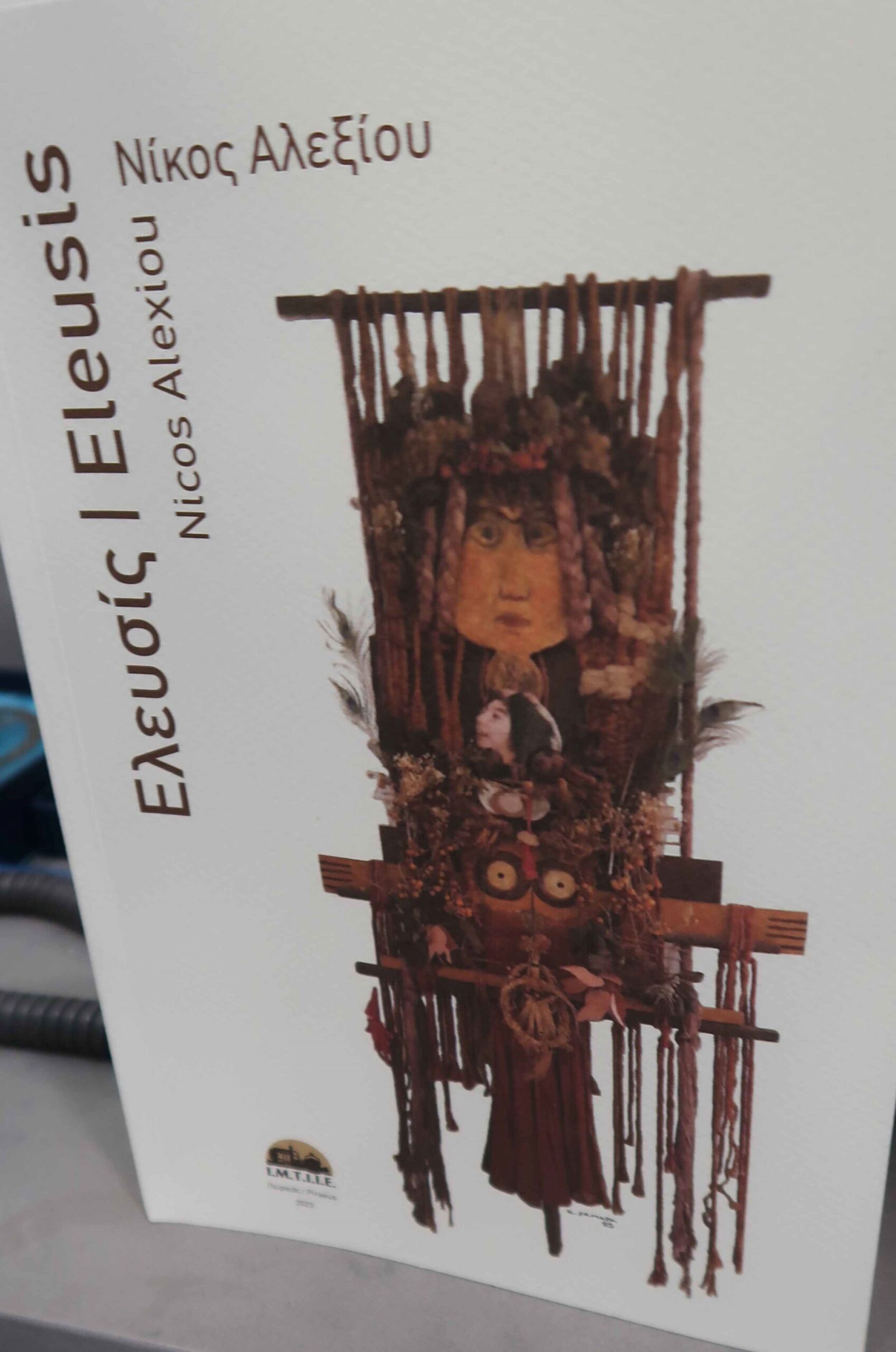
“Mr. Nikos Christodoulides, President of the Republic of Cyprus, was my student at Queens College,” said Prof. Alexiou. “President Christodoulides is the force behind a unique exhibition of the Cyprus Invasion that will open this Thursday, June 20th. Unseen photos of thousands of Turks landing in Kyrenia. During our interview, Grammaticus Macedon (professional name) was preparing the landmark photo exhibit at the HAP library.
The photo exhibition is titled “NEVER FORGET 1974-2024: HONORING THE MEMORY of Cyprus’ Struggle Against Illegal Occupation.” The opening reception is Thursday, June 20th, from 5-7 pm in the Rosenthal Library- Rotunda at 65-30 Kissena Blvd, Flushing NY, Queens College, CUNY.
Prof. Alexiou explained, “The Hellenic American Project Library was renamed Argonauts Library in November 2021 to recognize a major donation from the association Syllogos Nomou Magnisias Argonaftes (Argonauts). The library’s 3000 volumes are being digitized. This increases opportunities for new knowledge to all who want to know about the Greek American experience.”
“The physical and digital archive of the Greek broadcasting service of the VOICE OF AMERICA, one of the original language services of the network, is now donated to the Hellenic American Project (HAP). After 72 years on the air, Voice of America’s Greek Service signed off for the last time on August 11, 2014. It was established on November 1, 1942, and covered historic turning points of modern Greece, from the civil war in the late 1940s to the accession of the country to the European Union, and Greece’s struggles ten years ago to remain an integral part of the E.U.” My late father, a WWII veteran, and the TV networks would talk about The Voice of America in Greece. It was the definitive explanation of what was happening in Greece from the 1950s to the 2000s.
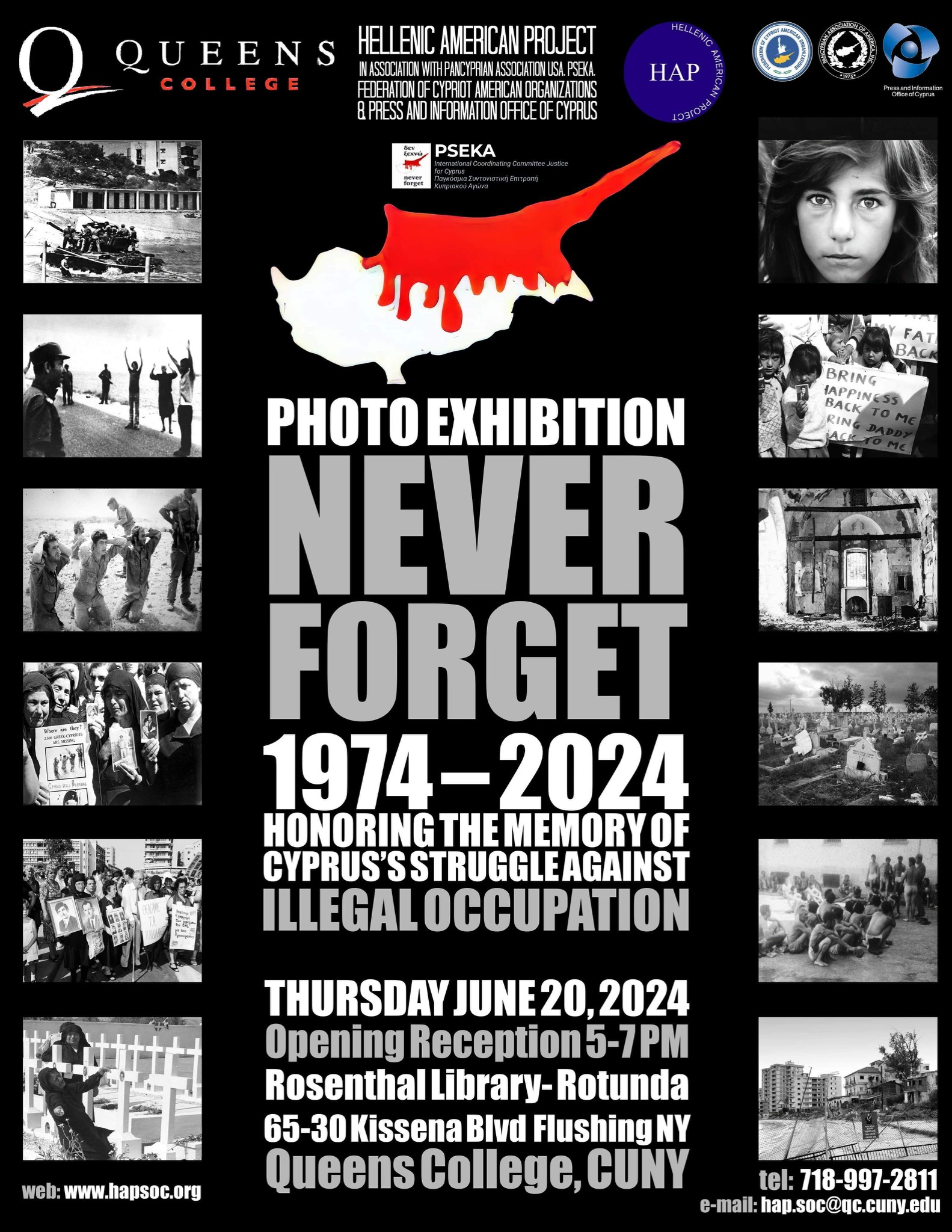
“We have the original copy of the first publication of AHEPA. Not even AHEPA has it,” he explained. Books from the 1920s were gathered from families, basements, and community members.” My family had similar books in our home.
“I am a poet,” said Dr. Nicholas Alexiou. “I see life differently. We must acknowledge the literary work of our Greek Americans. The history of the Greek American experience is not taught in schools. Our children must learn from a young age about our contribution to poetry and writings.” Dr. Alexiou’s 2024 poetry book sold out one thousand volumes.
The Greek Orthodox Archdiocese system should use this unique source of Greek learning in America. Dr. Alexiou has established an amazing oral library. He gathers sources on Greek Americans with a dedication seldom seen. HAP operates as a research facility, archive, Greek American Library, museum, and event space. The Hellenic American Project at Queens College address is Queens Hall, R:015, 65-21 Main Street, Queens, NY 11367. Visit https://www.hapsoc.org/library/. For more information, contact [email protected].
Reference
1. https://www.goodreads.com/quotes/748518-a-library-of-wisdom-is-more-precious-than-all-wealth




